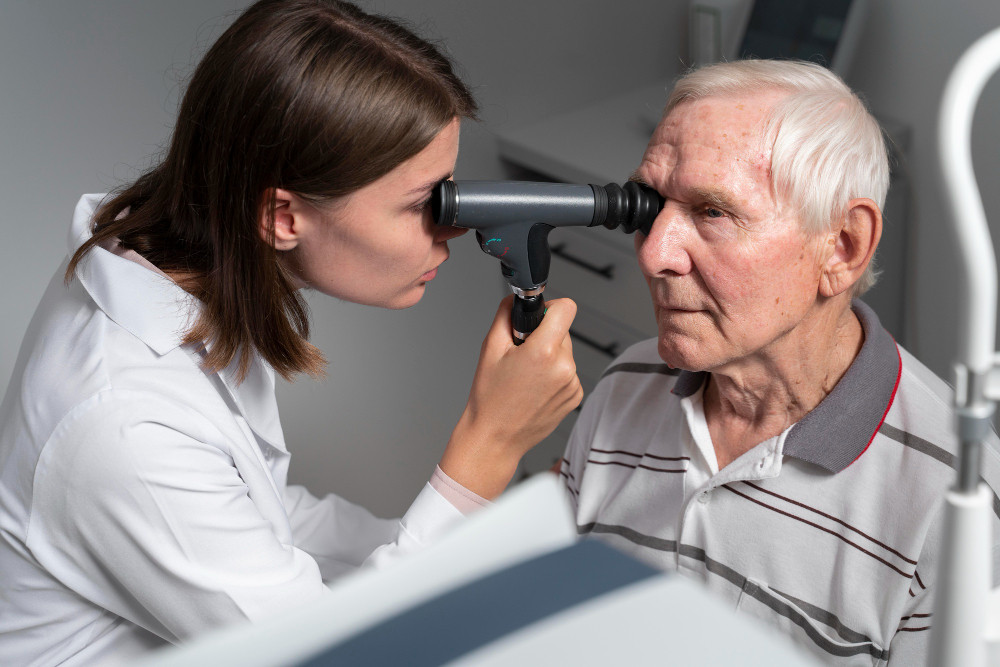Diabetes is a disease caused by high blood sugar levels and can affect anyone, regardless of gender. Risk factors include a family history of diabetes, an unhealthy diet, and a lack of physical activity.
However, women face unique risks associated with diabetes, such as gestational diabetes, which can develop during pregnancy. Although gestational diabetes typically resolves after pregnancy, it can increase the risk of developing type 2 diabetes later in life.
Negative impact of diabetes on women
Poorly controlled diabetes can affect a woman's life in a variety of ways, including:
Increased risk of infection
Women with diabetes are more likely to develop yeast infections and urinary tract infections (UTIs). High sugar levels in the blood provide an ideal environment for yeast and bacterial growth. Poor circulation also reduces the body's ability to fight infections.
To avoid this, manage blood sugar levels to keep them stable, do not hold back urination, drink plenty of water, and wear cotton underwear that keeps the genital area dry.
Irregular menstrual cycle
Women with type 1 and type 2 diabetes are more likely to experience irregular menstrual cycles. Hormonal fluctuations during the menstrual cycle can impair blood sugar control. These changes include increased insulin resistance during specific stages of the menstrual cycle. Hormonal changes can also cause complications like high blood sugar (hyperglycemia) or low blood sugar (hypoglycemia).
Sexual arousal disorder
Diabetes can reduce sexual arousal in women by causing vaginal dryness. This condition makes intercourse unpleasant or even painful.
Difficulty becoming pregnant
Women with diabetes frequently have difficulty conceiving. Factors such as obesity, being underweight, hormonal disorders, and other diabetic complications like nerve damage, PCOS, and autoimmunity can all have an impact on fertility.
Risk of gestational diabetes
Women with risk factors such as obesity, physical inactivity, a history of prediabetes or gestational diabetes, or PCOS have a higher risk of developing gestational diabetes. This condition can lead to type 2 diabetes later in life and can also impact the baby, including:
- Large birth weight
- Hypoglycemia in the baby
- Breathing problems
- Increased risk of obesity in infants
- Increased risk of type 2 diabetes in adulthood
Pregnancy complications
High blood sugar levels can lead to pregnancy complications, including:
- Fetal anomalies or defects
- Baby being born overweight
- Need for a cesarean section
- Preeclampsia and eclampsia
- Premature labor
- Miscarriage or stillbirth
Women with a history of prediabetes or diabetes should carefully monitor their blood sugar levels. If you have difficulty managing your blood sugar, seek advice from a doctor or nutritionist on organizing a healthy diet, increasing physical activity, and considering blood sugar-management medications.
Do you have other questions about diabetes? You can make use of the consultation features that are available in the Ai Care application by downloading the Ai Care application from the App Store or Play Store.
Looking for more information about other diseases? Click here!
- Sean Edbert Lim, MBBS
CDC (2022). Diabetes and Women. Available from: https://www.cdc.gov/diabetes/library/features/diabetes-and-women.html
National Institute of Diabetes and Digestive and Kidney Disease (2023). What Is Diabetes?. Available from: https://www.niddk.nih.gov/health-information/diabetes/overview/what-is-diabetes
American Heart Association (2021). Diabetes Risk Factors. Available from: https://www.heart.org/en/health-topics/diabetes/understand-your-risk-for-diabetes
Mayo Clinic (2022). Gestational diabetes. Available from: https://www.mayoclinic.org/diseases-conditions/gestational-diabetes/symptoms-causes/syc-20355339
Mayo Clinic (2022). Urinary tract infection (UTI). Available from: https://www.mayoclinic.org/diseases-conditions/urinary-tract-infection/symptoms-causes/syc-20353447
John Hopkins Medicine. Yeast Infection. Available from: https://www.hopkinsmedicine.org/health/conditions-and-diseases/candidiasis-yeast-infection
Beth Sissons (2021). How does diabetes affect the menstrual cycle?. Available from: https://www.medicalnewstoday.com/articles/does-diabetes-affect-period
Cleveland Clinic (2023). Hyperglycemia (High Blood Sugar). Available from: https://my.clevelandclinic.org/health/diseases/9815-hyperglycemia-high-blood-sugar
NHS UK (2023). Low blood sugar (hypoglycaemia). Available from: https://www.nhs.uk/conditions/low-blood-sugar-hypoglycaemia/
Diabetes UK. Planning For a Pregnancy When You Have Diabetes. Available from: https://www.diabetes.org.uk/guide-to-diabetes/life-with-diabetes/pregnancy
CDC (2022). Type 1 or Type 2 Diabetes and Pregnancy. Available from: https://www.cdc.gov/pregnancy/diabetes-types.html











